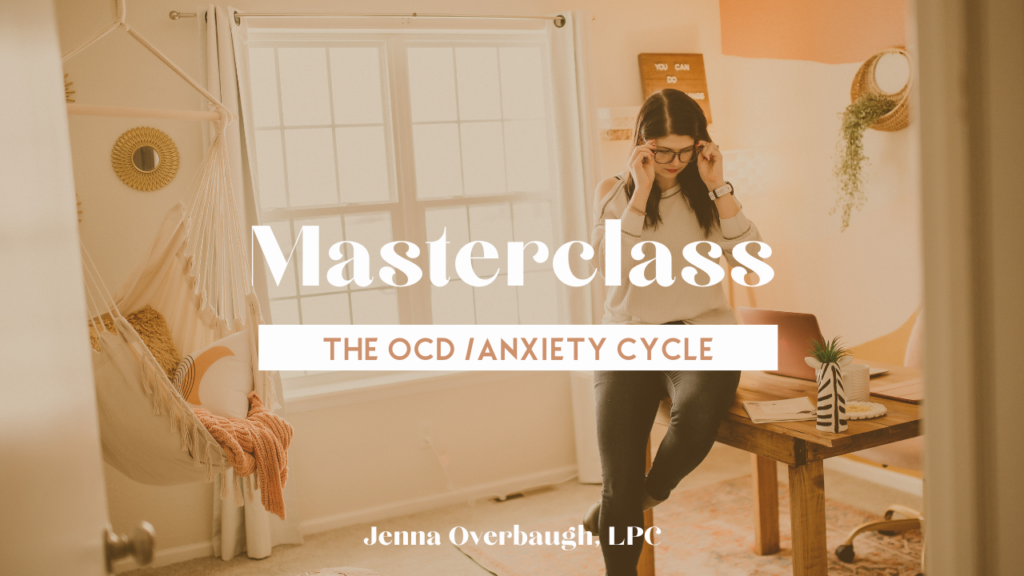The Power of Connection: How Social Support Facilitates OCD and Anxiety Recovery
June 13, 2023
The Power of Social Support
Recovering from OCD and anxiety is not a journey meant to be traveled alone. Because of this, the role of social support in this process cannot be overstated. Having a strong network of understanding and compassionate individuals can make a significant difference in one’s ability to navigate recovery. In this blog post, we will explore the invaluable role of social support in OCD and anxiety recovery and how building and maintaining meaningful connections can contribute to long-term well-being.
We all know how isolating OCD and anxiety can be. And that’s why it’s so important to know that you are, in fact, not alone. And that’s why we’ve created an exclusive Facebook community to go along with every masterclass purchase. Keep reading below to learn more!
The Importance of Social Support
Social support plays a vital role in helping individuals with OCD and anxiety maintain their motivation, resilience, and sense of belonging throughout their recovery journey. Afterall, knowing that there are people who genuinely care and understand can provide the encouragement and validation needed to face fears, challenge negative thoughts, and persevere during difficult times.
Key Benefits of Social Support
1. Emotional Validation: Not to be confused with reassurance, sharing experiences with empathetic individuals who have faced similar struggles can provide emotional validation. Knowing that others have faced similar challenges and have overcome them can instill hope and reduce feelings of isolation. It’s helpful to know that other people out there have scary thoughts, too.
2. Practical Assistance: Social support networks can offer practical assistance, such as helping with exposure exercises, providing reminders, teaching new skills, or assisting with where to find certain information.
3. Accountability and Motivation: Being part of a supportive community can foster accountability and motivation. When surrounded by individuals who understand the goals of recovery, there is a shared commitment to progress and a collective push toward growth.
4. Strategies and Tips: Social support networks provide opportunities for the exchange of strategies and tips. Learning from others who have successfully managed their symptoms can provide valuable insights and practical tools for one’s own recovery journey.
Building Social Support
1. Join Support Groups: Every masterclass purchase on my website now includes access to an exclusive Facebook community. And by purchasing a masterclass, you’ll get access to this group to be with others who have also taken that step on their journey. You can also look for local or online support groups specifically tailored to OCD and anxiety. Moreover, these groups offer a safe space to share experiences, gain insights, and build connections with individuals who understand the challenges you face.
3. Share with Trusted Individuals: Open up to trusted friends, family members, or mentors about your struggles. Let them know how they can support you and provide the understanding you need without accommodating. You absolutely can have meaningful and supportive relationships even if you have OCD and anxiety.
4. Engage in Online Communities: Participate in online forums, communities, and social media groups dedicated to OCD and anxiety recovery. These platforms can offer a wealth of information, support, and connections with individuals from diverse backgrounds.
An Integral Component of Recovery
In conclusion, social support is an integral component of OCD and anxiety recovery. The power of connection, understanding, and encouragement cannot be overstated. Building and maintaining meaningful relationships with empathetic individuals who share similar experiences can contribute to increased resilience, motivation, and overall well-being. Remember, you are not alone on this journey. Reach out, seek support, and embrace the strength of togetherness. To learn more about OCD and anxiety recovery strategies and resources, visit my website at www.jennaoverbaughlpc.com, where you can find additional support and guidance.
Want more content like this? Check out some of my related podcasts and masterclasses below.

This post is for informational purposes only and may not be the best fit for you and your personal situation. It shall not be construed as mental health or medical advice. The information and education provided here is not intended or implied to supplement or replace professional advice of your own professional mental health or medical treatment, advice, and/or diagnosis. Finally, make sure to check with your own physician or mental health professional before trying or implementing anything read here.
© 2023 Jenna Overbaugh, LLC
most popular episodes
Love my podcast?
Episode 112: Postpartum OCD and False Memory OCD
Imagine how in depth I can go in an online course. Instantly downloadable and game-changing. Take the next step towards an amazing life.